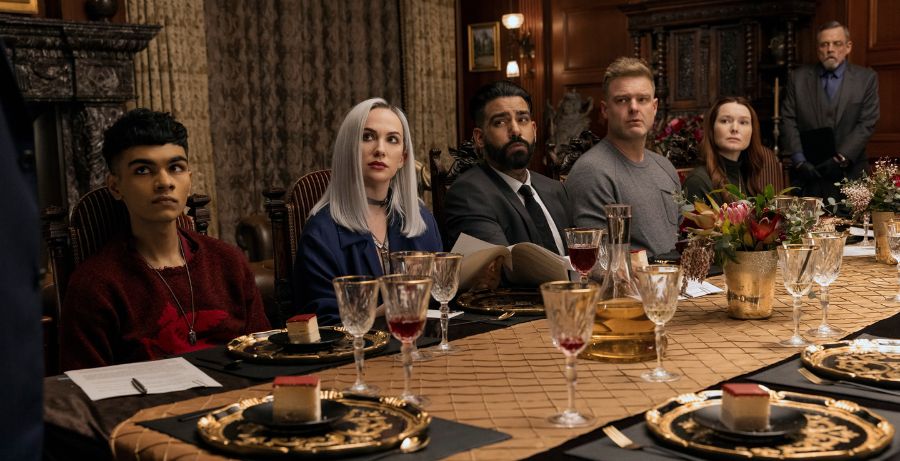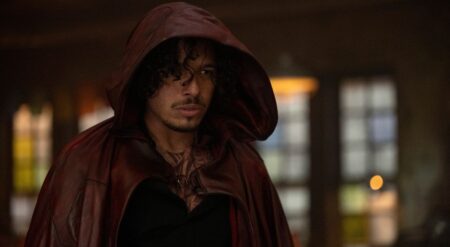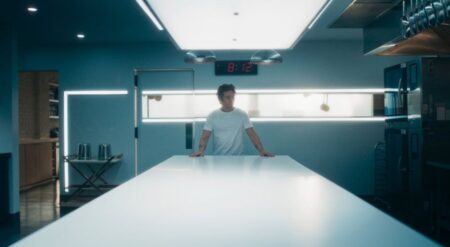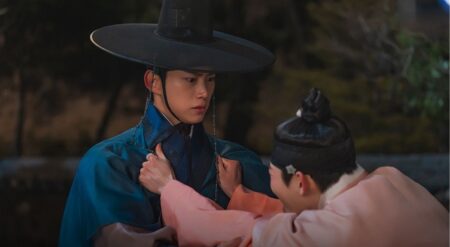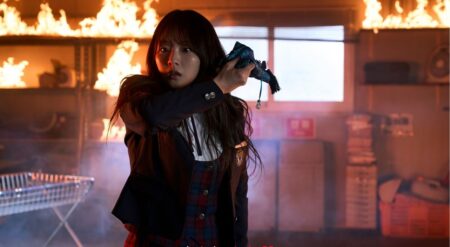Mike Flanagan is one of the best long-form horror storytellers. While his films are chilling, his Netflix series have showcased grief, trauma, addiction, love, and all of the layers of humanity that we try to hide away. Now, Flanagan takes on a classic, The Fall of the House of Usher—and many of Edgar Allan Poe’s other works.
Capturing wickedness in this horror series that follows the ruthless Usher siblings, Roderick (Zach Gilford/Bruce Greenwood) and Madeline (Willa Fitzgerald/Mary McDonnell) as they build Fortunato Pharmaceuticals into an empire of wealth, privilege, and ill-begotten power. But when all of the Usher children begin to die mysterious deaths in quick succession, the fall of the family and the fortune unearth the secrets of the Usher dynasty and the rot that lays beneath it.
The series features a cast of actors that often lend their talent to Falagan’s work and more with Carla Gugino, Henry Thomas, T’Nia Miller, Rahul Kohli, Kate Siegel, Kyliegh Curran, Samantha Sloyan, Ruth Codd, with Sauriyan Sapkota, Michael Trucco, Katie Parker, Paola Núñez, Malcolm Goodwin, and Daniel Chae Jun. Created directed, and written by Mike Flanagan, the series also features Michael Fimognari as a director on four of the eight episodes and Emmy Grinwis, Justina Ireland, Mat Johnson, Dani Parker, Rebecca Klingel, James Flanagan, and Kiele Sanchez making up the rest of the series’ writers.
Flanagan isn’t one for shot-for-shot adaptations, and that’s what has made his take on both The Haunting of Hill House and The Turning of the Screw in his first two Netflix horror series a critical success. Instead of adapting every scene, he chooses to adapt the spirit and emotion from the works, and in that way, The Fall of the House of Usher is a beautiful and intimate look at the works of Edgar Allan Poe and not just an adaptation of one story.
In this series, we see nods to Poe classics like The Murder in the Rue Morgue with the inclusion of Detective Augustine and The Narrative of Arthur Gordon Pym of Nantucket with Pym’s (Mark Hamill) appearance throughout the series, and more nods to Poe’s literary career exist in small moments, names of places, events, and people.

In other episodes and characters, we see iterations of The Tell-Tale Heart, The Pit and the Pendulum, The Masque of Red Death, The Premature Burial, The Black Cat, William Wilson, The Cask of Amontillado, The Raven, and substantially more. In some ways, The Fall of the House of Usher is a collection of Poe’s greatest hits adapted to 2023, but at the same time, the series goes beyond Poe’s literary works, scraping against them and creating a cohesive story in which every character connects to the other, the stories of depravity and violence overlapping with their guilt and selfishness and rage and the sweet cathartic retribution that comes with it all.
Poe is not a shadow to be stepped into lightly. He is a behemoth of gothic romance and horror whose success in literature comes from capturing the thin veil between survival and guilt, the prices we pay for selfishness, and ultimately for love. Flanagan’s deft hand at capturing the human condition and the ways in which desire and fear force them to breakpoints is a skill that lends to the source material to craft it into something absolutely unique.
Yes, Flanagan takes classics and morphs them into something dynamic, emotional, and original as he builds connective tissue between each adapted story and character that makes this story feel like something lived in and original without becoming a cacophony of Poe references.
The Fall of The House of User doesn’t match the near perfection of Flanigan’s other series. The focus on modern problems in such overt terms often comes across as insincere and hamfisted. However, despite this, the series has a grim charm that captures the spirit of Poe that somehow it’s messiness captures. Any disjunction the series feels in balancing the massive personalities in its stacked cast is mostly solved by the almost anthology format. Each Usher kid has their own episode, which, while they all talk to each other, gives each actor embodying the crazed Poe tale the space to do the absolute most without devouring other actors in their space.
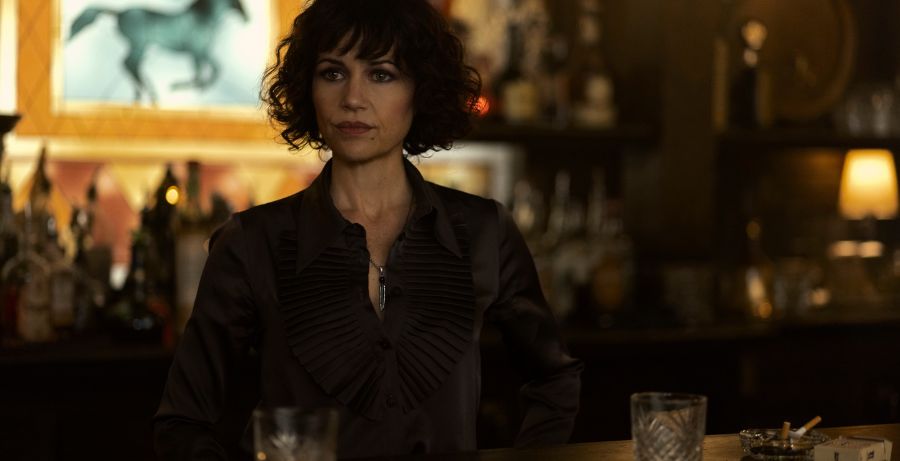
On that note, the series is filled with phenomenal performances with memorable moments happening in each episode that show the reasons why Flanagan continues to work with the core cast of actors across his series. That said, there is one standout in everything. In every story, in every scene she is in—and even in the moments where she is absent but her shadow lingers—Carla Gugino is a force. She touches everything and lords over it in a way that makes this entire story hers as much as it belongs to the Ushers.
Gugino’s Verna is beautiful and divine, and she devours every single actor in her path, except Kate Siegel, Kyliegh Curran, and Mark Hamill as Camille, Lenore, and Arthur Pym, respectively. While the nature and mystery of the series restrict how much I can talk about her role, it is astounding, menacing, and the deepest empathy you see in the series.
Filled with tension and the gothic romanticism and selfishness that begets penance and revenge, The Fall of the House of Usher is a stunning tribute and exhaustive love letter to the works of one of America’s most prolific writers. Even if it isn’t perfect, the series is one that you can fall into deeply, especially if you share the reverence Mike Flanagan has for the Master of the Macabre.
The Fall of The House of Usher is streaming exclusively on Netflix now.
The Fall of the House of Usher
-
Rating - 8.5/108.5/10
TL;DR
Filled with tension and the gothic romanticism and selfishness that begets penance and revenge, The Fall of the House of Usher is a stunning tribute and exhaustive love letter to the works of one of America’s most prolific writers. Even if it isn’t perfect, the series is one that you can fall into deeply…

